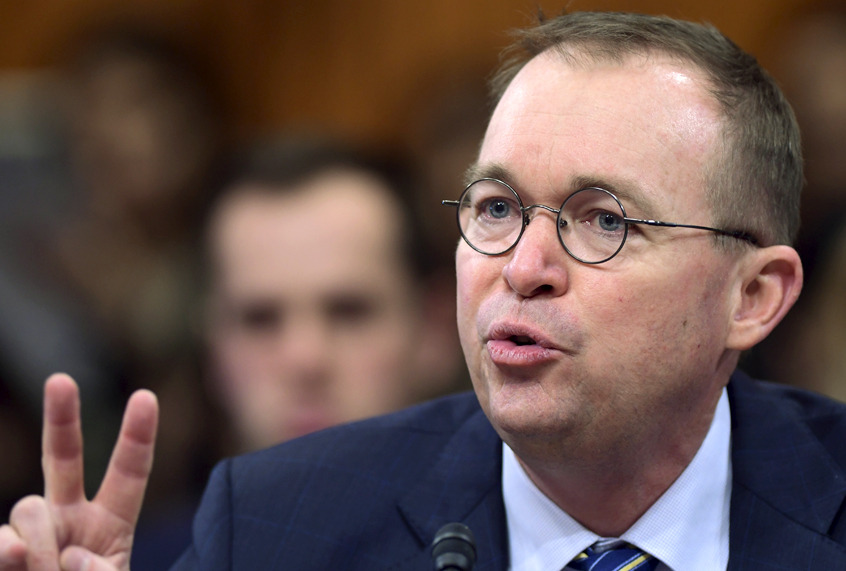This is definitely a man-bites-dog federal budget story.
Since becoming Trump’s Office of Management and Budget director, Mick Mulvaney has viciously attacked the Congressional Budget Office as a highly partisan and substantively inept organization. He has repeatedly questioned its economic assumptions, its budget analyses and the politics of its analysts.
And that makes it more than a little newsworthy that OMB, the federal agency Mulvaney himself directs and in his mind is a paragon of bipartisanship and objectivity, released a report last Friday that not only shows that CBO’s numbers were substantively good, it also shows that the organization Mulvaney had attacked for being too partisan was more optimistic about where the federal deficit is headed the next few years than Trump’s own budget director.
CBO said in its Long-Term Budget Outlook report released last month that the 2018 deficit will be $793 billion; OMB said in its just-released Mid-Session Review of the president’s budget that it will be $890 billion. For 2019, CBO said the deficit will be $973 billion while OMB said it will be $1.085 trillion. For 2020, CBO said $1.003 trillion compared to OMB’s $1.076 trillion.
It’s important to note that OMB’s numbers are based on what we already know is a complete myth: that the spending cuts included in the Trump fiscal 2019 budget sent to Congress earlier this year will be enacted. For the second year in a row, the GOP Congress has shown no interest whatsoever in adopting the spending cuts the president proposed.
As a result, the disparity between CBO’s relatively optimistic deficit estimates and OMB’s comparatively pessimistic projections is most likely to get larger.
To be fair, CBO and OMB diverge in the opposite direction from 2022 through 2028. But, also to be fair, everyone’s budget forecast beyond three years is far more guesswork than substantive analysis given that its multiple congressional and presidential elections and countless natural and man-made disasters will occur, and long-term forecasts of how fast the economy will grow (or not) are often just wishful thinking or straight-line extrapolations.
In the meantime, however, OMB Director Mick Mulvaney owes the Congressional Budget Office a huge apology.
Stan Collender is one of the leading experts on the federal budget, federal spending and revenues, the deficit, the national debt and the congressional budget process. He blogs thebudgetguy and can be found on Twitter @thebudgetguy.


